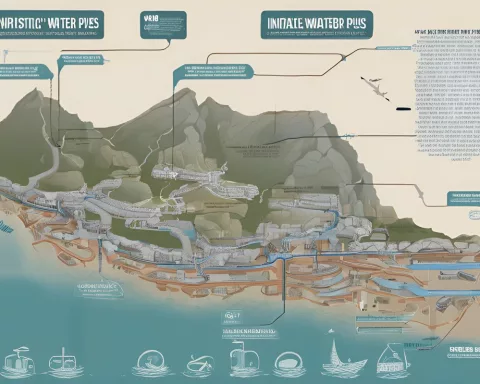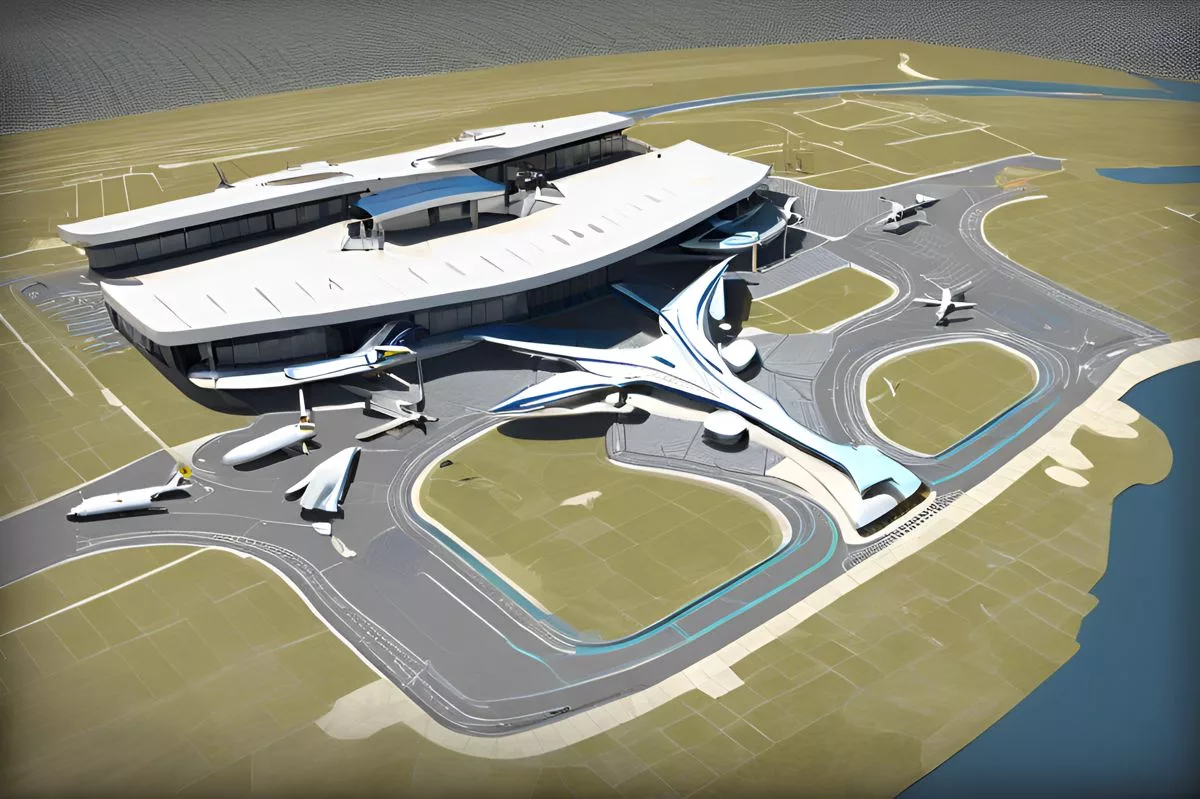Mexico City and Bogota are facing an ecological crisis called ‘Zero Hour’ due to an El Niño-induced drought that is quickly draining their water reserves. Both cities could hit ‘Zero Hour’ by June unless drastic reductions in water usage are made. Cape Town’s success in managing a similar crisis serves as a glimmer of hope, but the responsibility to act decisively and responsibly lies with both city officials and residents. The situation is being exacerbated by a ‘heat dome’ created by El Niño, and potential solutions include investing in desalination plants and utilizing underground aquifers.
Mexico City & Bogota: An Intensifying Crisis
Mexico City and Bogota face an ecological crisis named ‘Zero Hour’. An El Niño-induced drought is draining their water reserves, and both cities could hit ‘Zero Hour’ by June unless there are drastic reductions in water usage. Inhabitants in Mexico City frequently encounter empty taps, and in Bogota, dwindling reservoirs have led to intermittent water cutoffs. Lessons from Cape Town’s survival narrative serve as a glimmer of hope for both cities, but the responsibility rests with both city officials and residents to act decisively and responsibly.
Mexico City, the pulsating heart of Mexico, and Bogota, Colombia’s lofty capital, are on the cusp of a mounting ecological crisis aptly named ‘Zero Hour’. Originally, the term was crafted by Cape Town’s civic leaders during their water shortfall, depicting a bleak scenario where water taps cease to flow. This impending ‘Zero Hour’ in Mexico City and Bogota is being exacerbated by an El Niño-induced drought that is rapidly draining their water reserves.
Mexico City & Bogota: An Intensifying Crisis
In Mexico City, inhabitants frequently encounter empty taps for prolonged periods. Even when the water does flow, it often carries a dark brown hue and emits a foul odor. A past political figure has appealed to the public to “prioritize survival essentials” as water supplies dwindle. In Bogota, dwindling reservoirs have led to intermittent water cutoffs. The city’s mayor has even recommended that families bathe together and vacation outside the city on weekends to conserve water.
This critical situation has been necessitated by a ‘heat dome’, instigated by El Niño, which intermittently introduces exceptionally arid weather to the Southern Hemisphere. This climatic phenomenon is breaking temperature records, creating harsh drought conditions in Central and South America. City officials caution that both cities could hit ‘Zero Hour’ by June unless there are drastic reductions in water usage.
Lessons From Cape Town: A Cautionary Tale
Cape Town, which narrowly escaped its own ‘Zero Hour’ in 2018, provides a precedent for these Latin American cities. Cape Town’s success case is a testament to efficient crisis management at a city level, supported by an effective public awareness campaign and stringent penalties for excessive water consumption. However, Mexico City and Bogota confront unique obstacles in their struggle to prevent ‘Zero Hour’.
Cape Town’s successful strategy might prove challenging for Mexico City to adopt due to public mistrust in the government, antiquated infrastructure, and significant water wastage due to leakage and theft. Manuel Perló Cohen, a professor at the National Autonomous University of Mexico, commented, “The model won’t be successful here, due to distrust in the government. The populace doubts most government announcements, even truthful ones.”
Bogota’s Struggle and Potential Solutions
Bogota, despite earning public trust and wielding the political authority to initiate intermittent water cutoffs, faces a distinct hurdle. The city battles a lack of public zeal, according to Laura Bulbena, a Bogota-based advocate with the environmental NGO World Resources Institute. She pointed out that despite recent downpours, the city’s water consumption had actually risen.
Despite these challenges, there exist potential solutions and alternative water sources that could enhance water security in both cities. For instance, Cape Town boosted its water system by investing in desalination plants and refilling groundwater wells with treated wastewater.
Bogota, which primarily depends on reservoirs for its water supply, could utilize the robust underground aquifer beneath the city. Proposals have been put forth to rejuvenate the natural environment near the Bogotá River, which could aid in purifying the river’s water for consumption. Armando Sarmiento López, a professor of ecology at Javeriana University in Bogotá, maintains, “Bogotá has an excellent water system, but the city must finance a backup system, given the likelihood of recurring El Niño events.”
Mexico City: A Need for Systemic Reform
Mexico City, on the other hand, needs to tackle systemic problems, such as leakage issues and the construction of wastewater treatment facilities. Alejandra Lopez Rodriguez, a policy advocate at the Nature Conservancy in Mexico City, holds the view that the resources and capital are available. What’s required now is the political desire and focus to invest in these matters.
On the brink of ‘Zero Hour’, both Mexico City and Bogotá now find themselves at a critical juncture. Lessons from Cape Town’s survival narrative serve as a glimmer of hope. However, the responsibility rests with both city officials and residents to act decisively and responsibly, fostering mutual trust and reinforcing the importance of conservation. Successfully navigating this crisis will demand a unified effort, inventive approaches, and an uncompromising determination to safeguard the invaluable resource that is water.
What is ‘Zero Hour’ and why are Mexico City and Bogota facing it?
‘Zero Hour’ is an ecological crisis caused by an El Niño-induced drought that is draining the water reserves of Mexico City and Bogota at an alarming rate. Unless drastic reductions in water usage are made, both cities could hit ‘Zero Hour’ by June.
What are the consequences of ‘Zero Hour’ for Mexico City and Bogota?
If Mexico City and Bogota hit ‘Zero Hour’, water taps will cease to flow, leaving residents without access to clean and safe water. This will have severe consequences for daily life, hygiene, and public health.
What can we learn from Cape Town’s experience with ‘Zero Hour’?
Cape Town provides a successful case study in how to manage a water crisis. Efficient crisis management, public awareness campaigns, and penalties for excessive water consumption played a crucial role in helping Cape Town avoid ‘Zero Hour’. However, the challenges faced by Mexico City and Bogota are unique, and solutions need to be tailored to their specific contexts.
What are the potential solutions to the water crisis in Mexico City and Bogota?
Potential solutions include investing in desalination plants, utilizing underground aquifers, rejuvenating natural environments to purify rivers, and tackling systemic problems such as leakage issues and the construction of wastewater treatment facilities.
What are the unique challenges faced by Mexico City and Bogota in preventing ‘Zero Hour’?
Mexico City faces public mistrust in the government, antiquated infrastructure, and significant water wastage due to leakage and theft. Bogota faces resistance from a lack of public zeal despite having political authority to initiate intermittent water cutoffs.
What is the responsibility of both city officials and residents in preventing ‘Zero Hour’?
Both city officials and residents have a crucial role to play in preventing ‘Zero Hour’. They must act decisively and responsibly, fostering mutual trust, and reinforcing the importance of conservation. Successfully navigating this crisis will demand a unified effort, inventive approaches, and an uncompromising determination to safeguard the invaluable resource that is water.












